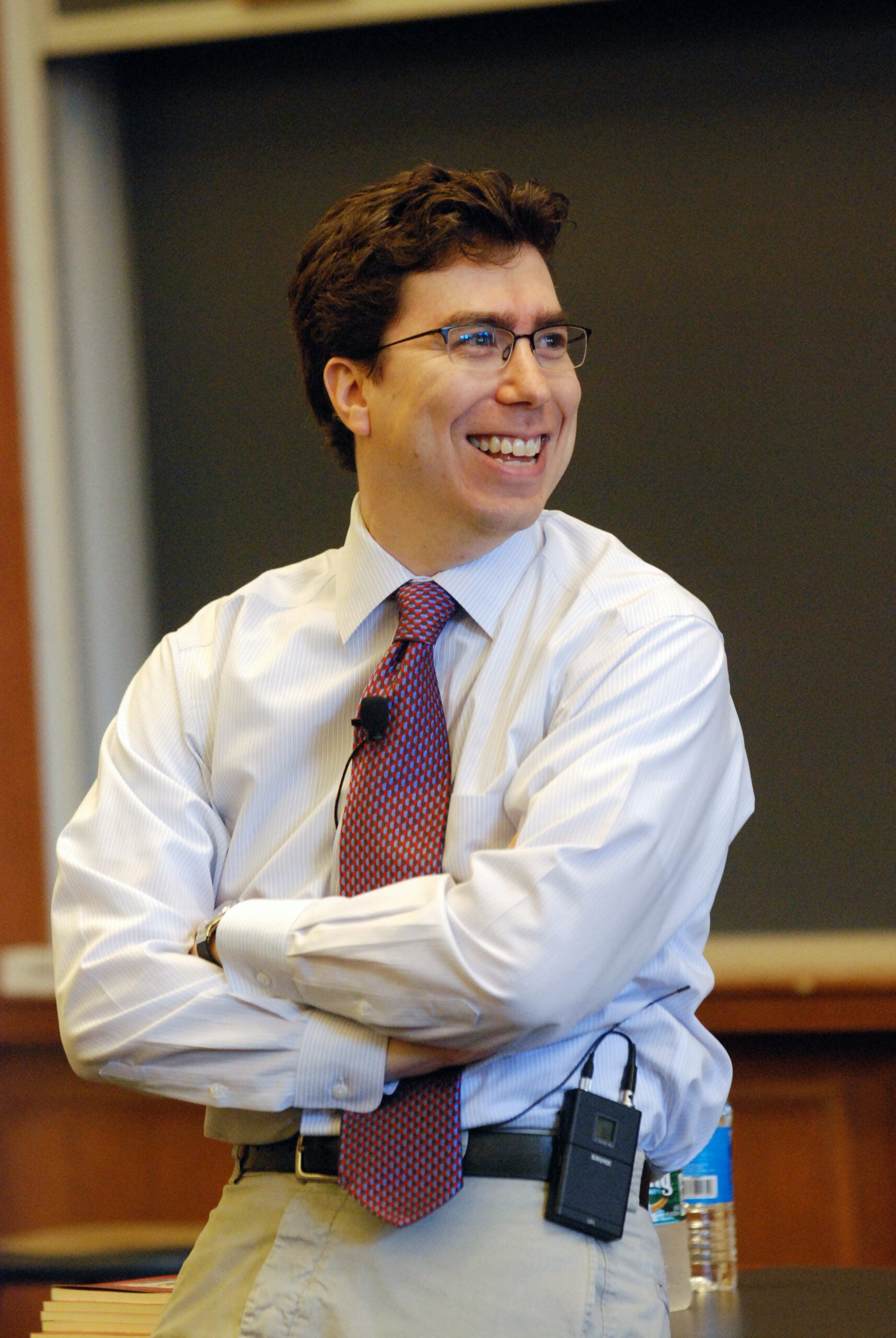Harvard Law School Professor Jonathan Zittrain ’95, a leading scholar on the legal and policy issues surrounding the Internet, adds to his law school post a joint appointment to the faculty of the Harvard School of Engineering and Applied Sciences (SEAS) as Professor of Computer Science. Zittrain is a co-founder of the university’s Berkman Center for Internet and Society.
“Jonathan’s appointment is a critical step in fostering stronger ties between HLS and SEAS,” says Dean of SEAS Cherry A. Murray, John A. and Elizabeth S. Armstrong Professor of Engineering and Applied Sciences and Professor of Physics. “Given the complexities of issues such as the security and privacy of data and medical records, open access scholarship, and the changing nature of digital identities (from social networks to gaming avatars), understanding the connections between law and technology is increasingly important. We believe that by leveraging the strengths of both our schools, Harvard will become a leading player in this exciting interface.”
“I am delighted that through Jonathan’s work, we are able to foster strengthened ties to the Engineering School,” said Harvard Law School Dean Martha Minow. “Jonathan’s work has long drawn upon his background in computer science and his groundbreaking analysis combines legal, political, and technological analyses in helping to shape and reassess the quickly changing field of cyberlaw. His new appointment to the School of Engineering strengthens his work, offers new opportunities for collaborations between our schools, and deepens Harvard University’s commitments to creative and comprehensive thinking about the challenges and opportunities of this digital age.”
Zittrain is author of the critically acclaimed The Future of the Internet — And How to Stop It, which examines how the Internet risks evolving from a user-dominated, highly innovative phenomenon to a more restrictive “appliancized” model of technology. The book explores participatory solutions to a range of problems arising from the Internet, including cybersecurity vulnerabilities.
Zittrain’s scholarly work bridges theory and experiment, prototyping tools for and on the Internet. As part of what would become the OpenNet Initiative with the universities of Toronto, Cambridge, and Oxford, he pioneered the first large-scale tests of Internet filtering in China and Saudi Arabia. Zittrain is a co-editor of the ONI’s Access Denied: The Practice and Policy of Global Internet Filtering and its sequel, Access Controlled: The Shaping of Power, Rights, and Rule in Cyberspace, which analyze Internet censorship around the world.
ONI’s work led Zittrain to found a new project with the Berkman Center, which allows individuals from around the world to report what they are experiencing in terms of web accessibility. Called Herdict, a portmanteau of ‘herd’ and ‘verdict,’ the project enlists Internet users to help report and digest a real time view of network problems and blockages around the world.
His concept of the shifting roles of public and private institutions is the intellectual underpinning for StopBadware, a large-scale empirical study of the flow of Internet malware online. From a dataset of thousands of dangerous sites flagged by Internet firms, the StopBadware research team has been able to track trends in computer security over time, isolate particular services more likely than others to host harmful code, and inform the public debate on the future of computing security. StopBadware has since spun off as an independent non-profit.
Zittrain was among the first to call for a code of conduct for multinational corporations doing business in regimes that filter the Web, an initiative described as “a Sullivan Principles for Cyberspace.” This work has contributed to the establishment of the Global Network Initiative, a multi-stakeholder organization that includes human rights groups, academics, and major Internet companies such as Google, Yahoo!, and Microsoft.
Zittrain returned to Harvard in 2008 from the University of Oxford, where he was the inaugural holder of the professorship of Internet Governance and Regulation. He is also on the faculty of Harvard’s Kennedy School of Government. He is a Trustee of the Internet Society, the umbrella organization for Internet protocol and development work; a member of the Council on Foreign Relations; and a contributor to the technical advisory board for Scientific American. He has participated in the World Economic Forum’s annual meeting in Davos as a faculty fellow, where he was named a Young Global Leader in 2005.
